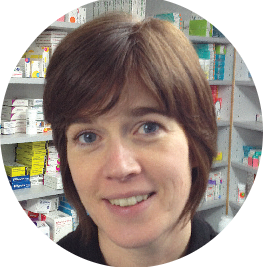Insight

Increase in sporting injuries
In Insight
Bookmark
Record learning outcomes
More and more people are now doing some form of sport and as these numbers rise, so does the number of injuries. How can pharmacy step in to help?

As the number of charity runs, walks and sporting events increases every year, the UK has become a nation of part-time athletes, with an annual attempt at a 10k run or Race for Life part of many people’s seasonal repertoire. Add to that the popularity of activity holidays, and the need for first aid, pain relief and preventive measures becomes very evident.
According to the experts at Nurofen, ‘Sporting events always see a number of injuries – even seasoned runners can be affected, so RICE (rest, ice, compression, elevation) is important. Anti-inflammatories, such as Nurofen, have a key role to play in reducing inflammation and pain.’ Pain relief is the biggest OTC category, with sales of almost £581 million in 2014.
Overall sales of analgesics were up by 6.2 per cent at the end of 2014 and growth was being driven by topical pain relief, a 23 per cent rise compared with just 2 per cent for adult oral pain relief – an ongoing trend that is possibly due to consumers’ concerns about the potential effects of some oral painkillers on gastric health. The Mentholatum Company’s senior product manager Kaye Mackay comments, ‘Sprains, strains, bumps and knocks are almost inevitable when taking part in sport or exercise and because GPs and A&E departments are under such pressure people will often decide to treat minor problems at home.’
Sprains and strains
Research carried out by The Mentholatum Company has confirmed that customers don’t really understand the difference between hot, cold and topical NSAID products or when and how to use them – and worryingly, this was also true of a number of healthcare professionals. Ms Mackay says, ‘There is still a significant amount of work to be done to make sure that customers coming into the pharmacy receive the necessary advice to select the most appropriate products. Sound product knowledge is vital.’
When discussing sprains and strains, for example, it is important to explain that a cold product should be used for up to 72 hours after suffering the injury to help limit swelling and inflammation, before switching to a heat product. Mentholatum has produced a new leaflet called ‘Pain relief without pills’, which shows how hot, cold and topical NSAID products can help at different stages and for different types of pain. The Self-Care Forum’s factsheets on treating sprains and strains and lower back pain also help consumers self-treat minor injuries effectively.
For sports injuries, Ms Mackay suggests offering a range of products in different formats from tried and trusted manufacturers with a history of expertise in the sector along with clear signposting and POS material. ‘It may also be helpful to produce a simple flyer promoting the pharmacy as the place to go for advice and effective products and to make contact with local gyms, sports clubs and leisure centres, encouraging people to visit the pharmacy when they need advice on treating minor injuries.’
Everyday sports
Nelsons Arnicare Arnica Cooling Gel reports that it has a significant integrated marketing campaign in place for 2015. The brand is targeting the ‘everyday sporty’ consumer audience, positioning the product as a natural healthcare option to use post-exercise. The campaign includes print advertisements in sports and fitness titles such as Health & Fitness, Women’s Fitness and Your Fitness, along with in-situ advertising in selected David Lloyd, Nuffield Health and Pure Gym gymnasiums around the south-east of England.
Nelsons Arnicare is leveraging its 2015 partnership with TV presenter Jenni Falconer to raise awareness of the usage and benefits for sportsmen and women of all abilities. Sports and recovery-related content is being tweeted, along with targeted emails, the website and blog.
Brand manager Hugo Pengelley says, ‘I’m really excited about our 2015 campaign and believe the advertising will help target Nelsons Arnicare Arnica Cooling Gel towards everyday sporty consumers. We really like the Personal Best campaign, as it conveys the point that Nelsons Arnicare Arnica Cooling gel can help sporting performance, no matter your goals or abilities.’
‘By using an integrated approach to advertising, PR, social media and sampling, we hope to make consumers aware that there is a natural healthcare product out there for them to use post-workout and make a great impact on sales.’ Cuxson Gerrard podiatrist, Michael Ratcliffe, believes that pre-event footcare is vital and that consumers who visit pharmacies looking for products to support their feet in advance of sporting events or activity holidays should be given the following advice:
- ‘Good footcare consists of maintaining hygiene – advise customers to wash feet daily in warm soapy water and dry carefully, especially between the toes. Apply moisturising cream, such as Carnation’s Intensive Moisturising Foot Cream and cut toenails carefully.
- ‘Pre-activity, gentle stretching both in general and for the feet is important, particularly the Achilles tendon/calf muscles and the plantar fascia – pull the toes back gently.’
Mr Ratcliffe advises that people who are going on walking holidays make sure they have wellfitting walking shoes or boots with plenty of room for toes, good grip under the shoe, a stiff midsole and cushioning insoles to absorb the impact shock of walking. If blisters set in, his advice to pass on is ‘Cover blisters immediately, don’t let them get bigger or, if you know where you normally get blisters, cover that area with an anti-blister material.’
Out and about
If customers complain of tired aching feet from being on their feet all day, or just the wrong shoes, they don’t have to be one of the 53 per cent of people who just put up with it. Scholl GelActiv Insoles were launched earlier this year to provide superior cushioning and a product trial revealed some promising results – 100 per cent of the 35 retail workers who wore the insoles said that they prevented feet from becoming sore and tired.
Long summer walks are one of the perks of the season for dog owners (and their pets) but with tics and pests causing bites, stings and even Lyme disease, it pays to be vigilant if customers show unexplained flu-like symptoms or fatigue. In the UK, Public Health England estimates the number of new cases each year at around 3,000 while Lyme disease charities say the figure could even be as high as 15,000 annually.
Alice Everard, technical manager at Merial, says, ‘In dogs, the most common signs of Lyme disease are fever, lethargy, loss of appetite, lameness and joint swellings. The signs can take a long time to develop, sometimes several months after a dog is bitten by an infected tick.’
‘In humans, infection is classically marked with a “bulls eye†rash at the site of the tick bite, but this does not always occur. The most common signs tend to be flu-like symptoms and excessive fatigue.’ Research reveals a lack of awareness among dog owners about ticks and Lyme disease: 47 per cent of people in a survey didn’t know that ticks can transmit diseases to both dogs and humans.
Comment
 Fiona McElrea, Whithorn Pharmacy, Whithorn ‘First aid is an important category because pharmacy is the first place people come to stock up and for guidance on how to treat burns and strained muscles. It’s not big value-wise, but it’s important; there’s a lot of advice you can give while selling a product. Germolene, Elastoplast, Tubigrip, Deep Heat and Deep Freeze are popular and Deep Heat is on the minor ailments scheme, so we can prescribe it quite easily. Having the right products and prices is essential. If you can buy products on offer, you can pass the savings on to customers. It makes a difference to be competitive on prices.’
Fiona McElrea, Whithorn Pharmacy, Whithorn ‘First aid is an important category because pharmacy is the first place people come to stock up and for guidance on how to treat burns and strained muscles. It’s not big value-wise, but it’s important; there’s a lot of advice you can give while selling a product. Germolene, Elastoplast, Tubigrip, Deep Heat and Deep Freeze are popular and Deep Heat is on the minor ailments scheme, so we can prescribe it quite easily. Having the right products and prices is essential. If you can buy products on offer, you can pass the savings on to customers. It makes a difference to be competitive on prices.’
Â
 Sultan ‘Sid’ Dajani, Wainwrights Chemist, Bishopstoke ‘I wish the products in this category were on a common ailments list – because if someone has an injury they need help quickly. However, when customers come to us it’s usually after the crucial first few hours for treatment have passed, so we then have to pick up the pieces. The best sellers in the category are painkillers, topical treatments and the compression sports bandages. It’s important to stock a range of sizes and keep a wide range of bandages for each body part. Trying to source compression bandages is difficult. Deliveries can take up to a month, so over-stocking is a danger.’
Sultan ‘Sid’ Dajani, Wainwrights Chemist, Bishopstoke ‘I wish the products in this category were on a common ailments list – because if someone has an injury they need help quickly. However, when customers come to us it’s usually after the crucial first few hours for treatment have passed, so we then have to pick up the pieces. The best sellers in the category are painkillers, topical treatments and the compression sports bandages. It’s important to stock a range of sizes and keep a wide range of bandages for each body part. Trying to source compression bandages is difficult. Deliveries can take up to a month, so over-stocking is a danger.’
Â
 Ashley Cohen, Pharm-Assist (Healthcare), Leeds ‘First aid is essential to what we do, and sports injuries is a growing market and becoming quite prominent. We have a lot of young men come in with football injuries and pulled muscles. We try to segment all the products together in the same area – it’s about visibility – although the space some products need on the shelves is quite frustrating. My view is that you can’t stock every range of product, but stick with wellknown ones and know your products well. Good advice and really understanding the products is key. If we don’t have something we can always order it in for the next day.’
Ashley Cohen, Pharm-Assist (Healthcare), Leeds ‘First aid is essential to what we do, and sports injuries is a growing market and becoming quite prominent. We have a lot of young men come in with football injuries and pulled muscles. We try to segment all the products together in the same area – it’s about visibility – although the space some products need on the shelves is quite frustrating. My view is that you can’t stock every range of product, but stick with wellknown ones and know your products well. Good advice and really understanding the products is key. If we don’t have something we can always order it in for the next day.’
